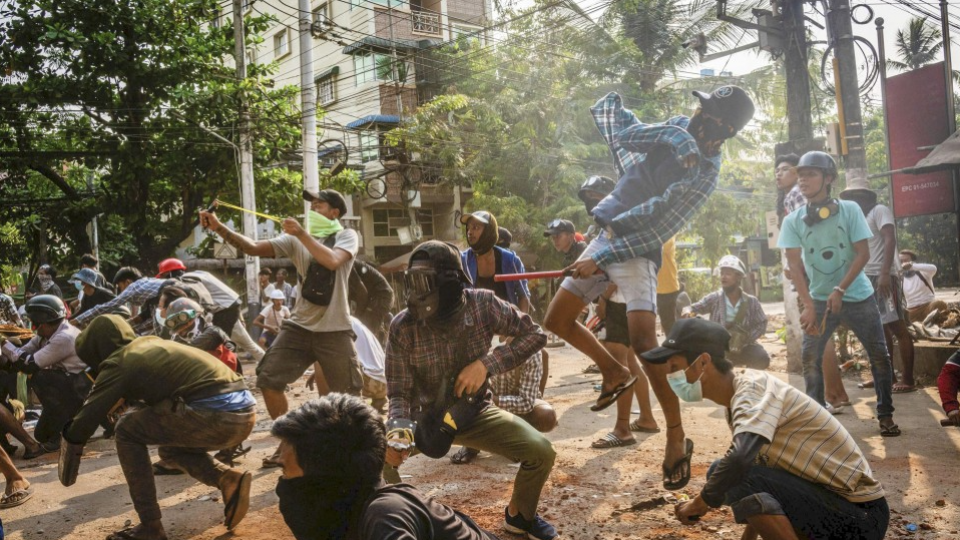Since March, the military regime in Myanmar has announced the termination of citizenship of 33 high-profile dissidents, a move critics have described as an abuse of human rights and a breach of international law.
Those targeted include diplomats refusing to work for the military, members of a parallel government set up in opposition to last year’s coup, outspoken celebrities and prominent activists. Three separate notices in state media said their citizenship was terminated because they committed “acts that could harm the interests of Myanmar”.
The military seized power in February 2021, after the National League for Democracy (NLD) under Aung San Suu Kyi won a landslide reelection victory, which the military refused to recognise. The coup sparked a political crisis – hundreds of thousands of civil servants went on strike, millions took to the streets to protest and peaceful demonstrations transformed to take up arms following brutal military crackdowns.
Among those stripped of citizenship is Kyaw Moe Tun, Myanmar’s ambassador to the United Nations, who dramatically declared his continued loyalty to the overthrown government shortly after the coup. He has been allowed to retain his seat at the UN as the military struggles for formal recognition internationally. Other diplomats stripped of citizenship include Myanmar Ambassador to the United Kingdom Kyaw Zwar Minn, and Thet Htar Mya Yee San, a second secretary at the Myanmar embassy in the United States.
The policy has also targeted prominent members of the National Unity Government – a rival cabinet set up by some politicians elected in the November 2020 polls.
“The junta’s desperate attempts to harm us and make us stateless are totally illegal and will not deter me, nor my colleagues from our work for the brave people of Myanmar who have suffered so much for so long. Indeed, it strengthens our resolve,” Dr Sasa, NUG spokesperson and minister of international cooperation, told Al Jazeera.
Phil Robertson, deputy director of Human Rights Watch’s Asia division, says the policy is just the latest example of the military “using citizenship as a weapon”.
“There are still many activists from previous generations of democracy protesters in the 1990s and early 2000s who still have not had their Burmese citizenship restored,” he said, adding that these issues are unlikely to be resolved until democracy is restored.
Emerlynne Gil, deputy regional director for research at Amnesty International, says terminating citizenship is “inconsistent with international law” if it leaves the victims stateless.
“This is the likely outcome for those targeted by the Myanmar military since the country does not allow dual citizenship,” Gil said.
She adds that the citizenship terminations “appear to be part of a climate of retribution in the country, where military authorities use any means no matter how cruel or unlawful to silence opposition” to the coup.
Sasa notes depriving people of their nationality has long been a tactic for the “genocidal” Myanmar military.
“Hundreds of thousands of Myanmar people, particularly our Rohingya brothers and sisters have suffered the same fate. Living stateless in the country they were born in. The only country they have ever known,” he said.
Many in the NLD previously defended the military’s violent 2017 crackdown on the Rohingya, which the US recently declared a genocide.
Many within the pro-democracy movement labelled the primarily Muslim Rohingya as illegal immigrants from Bangladesh in an attempt to justify their lack of citizenship rights and treatment that Amnesty International once described as “apartheid”. Aung San Suu Kyi even defended the military at the International Court of Justice in The Hague.



